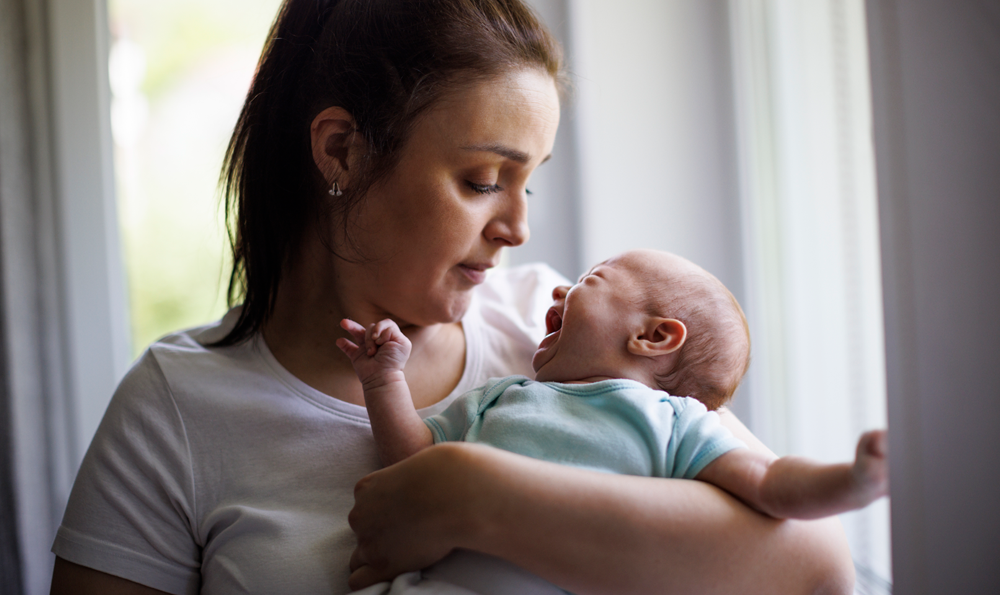Childbirth should be one of life’s most joyful milestones, full of excitement and anticipation. But for more than 70% of new mothers, “baby blues” follow delivery, according to Daniel Finch, MD, an Atlantic Health psychiatrist and certified perinatal mental health expert. And for some new mothers, these feelings develop into a more serious and concerning perinatal mood or anxiety disorder.
“Post-pregnancy hormone shifts and emotional changes are a natural part of childbirth,” says Dr. Finch, “but if these feelings become too intense and overwhelming, or persist or worsen, it can be a sign of postpartum depression.”
What is postpartum depression?
Unlike the mood swings and tearfulness of the baby blues, which usually resolves on its own within a few weeks, postpartum depression is a more serious and long-lasting mood disorder that can begin days or months after delivery. Common symptoms include:
- Persistent sadness, hopelessness
- Fatigue and low energy
- Trouble sleeping or sleeping too much
- Loss of interest in activities
- Feelings of guilt or worthlessness
- Difficulty bonding with baby
- Thoughts of harming yourself or baby
“Estrogen and progesterone drop rapidly after childbirth and trigger mood changes,” says Dr. Finch. “Combine this with learning to care for a newborn, adapting to breastfeeding, and living with disrupted sleep, and you’ve got a recipe that increases stress for any new mom.”
Strategies for boosting mental health after childbirth
- Rest and recover. Try to nap when baby naps and accept help from others so you can sleep and rest.
- Practice self-care. Sunlight, exercise, and a healthful and nutritious diet help stabilize mood and emotions.
- Build a support network. Staying connected to family and friends, even with brief social interaction, improves mood.
- Ask for help. Whether it’s for chores, time to shower, or emotional support, speak up when you’re feeling overwhelmed.
Seeking professional care
If you’re feeling depressed for more than two weeks, are unable to care for yourself or your baby, or are having troubling thoughts, it’s time to talk to a professional.
“Most women respond well to traditional therapies, which often include antidepressants that target brain chemicals,” says Dr. Finch. “For those experiencing severe postpartum depression, a specialist can offer a thoughtful and individualized approach that may include both pharmacological and non-pharmacological treatments. Seeking care from a postpartum expert ensures that treatment is tailored to your unique needs.”












